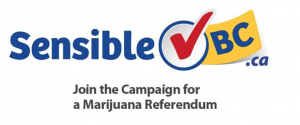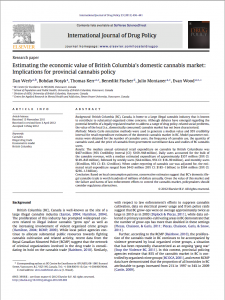2012 Sundance Film Festival Winner debuts in Vancouver this Friday, welcomed by Vancouver academic, advocacy, and business groups
Vancouver B.C. [February 28] – Organizations across the city are encouraging the public to attend limited screenings of The House I Live In, a U.S. documentary that has been heralded as “the definitive film on the failure of America’s drug war” and “a masterpiece filled with hope and the potential to effect change” showing this month at VanCity Theatre.
Filmed in more than 20 states across America, The House I Live In describes the consequences of America’s “war on drugs”. From the dealer to the grieving mother, the narcotics officer to the senator, the inmate to the federal judge, the film covers every angle of America’s longest war – and rings a warning bell for countries like Canada that are following in the footsteps of the U.S.’s failed “tough-on-crime” approach to drug policy.
Groups across Vancouver – including past and present members of law enforcement, internationally renowned researchers, health care organizations, student coalitions and members of the business community – are voicing their support for the film and encouraging attendance at the five screenings between Friday, March 1 and Wednesday, March 12.
This release is circulated by Stop the Violence BC on behalf of the following organizations that have publicly endorsed the film:
- Urban Health Research Initiative (www.uhri.cfenet.ubc.ca)
- Positive Women’s Network (www.pwn.bc.ca)
- Law Enforcement Against Prohibition – Canada (www.leap.cc)
- Canadian Students for Sensible Drug Policy – Vancouver (www.cssdp.org)
- St. Paul’s Hospital Foundation (www.helpstpauls.com)
- Megaphone Magazine (www.megaphonemagazine.ca)
- Providence Health Care (www.providencehealthcare.org)
- Collaborating Centre for Prison Health and Education
- Canadian Drug Policy Coalition (www.drugpolicy.ca)(www.ccphe.familymed.ubc.ca)
- The Media Merchants (www.themediamerchants.ca)
- Stop the Violence BC (www.stoptheviolencebc.org)
- BC Centre for Excellence in HIV/AIDS (www.cfenet.ubc.ca)
To view a trailer for The House I Live In, click here.
For a list of screenings, click here.
Why local organizations are encouraging people to see this film:
“After viewing the film, I was immersed in the care of addicted individuals admitted to St. Paul’s Hospital and I have not been able to shake the feeling that I should spend some energy trying to have the film seen by influential people locally. I think it has real potential to engage people who have not well understood some of the work we, as publicly funded researchers and healthcare providers, are collectively doing.”
– Dr. Evan Wood, Professor of Medicine at UBC & Canada Research Chair in Inner City Medicine
“The drug war is a long-term battle that isn’t close to being “won” by anyone, yet has far-reaching negative effects. The House I Live In promises to be a film that considers the battles around drugs that go beyond drugs themselves- poverty, racism, literacy, gender inequities and other social determinants of health. We are excited to see this film come to Vancouver.”
– Janet Madsen, Communications Coordinator, BC Positive Women’s Network
“It is important for all Canadians to watch this film and understand the damage that the United States has suffered as a result of the war on drugs, mandatory minimum sentences, and similar policies. This is not the right path for our country.”
– C. Ross Lander, Ret. BC Supreme Court Justice & Member, Law Enforcement Against Prohibition – Canada
“The war on drugs has disproportionately affected low-income people. I hope this important documentary is seen by policymakers who are in a position to end this failed policy.”
– Sean Condon, Executive Director, Megaphone Magazine
“At St. Paul’s Hospital, I’ve seen the role that the treatment of addictions can play in solving the medical and social issues that face our most vulnerable populations. We encourage everyone to watch documentaries like ‘The House I Live In’ to learn about the scope of the illicit drug problem – and the need to address it.”
– Dick Vollet, President and CEO, St. Paul’s Hospital Foundation
“Everyone should watch ‘The House I Live In’ to gain an understanding of how the War on Drugs negatively impacts our personal lives and society as a whole. The “War on Drugs” is a war on people.”
– Tera Holmes, Canadian Students for Sensible Drug Policy – Vancouver
“At its essence, ‘The House I Live In’ is about social justice. It makes a compelling case for society – and for each of us – to act justly and collectively; for each of us to take action toward overcoming inequities in our legal, political and social systems that disadvantage and punish the most marginalized people. As the leader of a health care organization that has a values-based approach to providing compassionate and socially just care, to me ‘The House I Live In’ reinforces the notion that we should all rightly be judged by how well we care for the most vulnerable members of our society.”
– Dianne Doyle, President and CEO, St. Paul’s Hospital/Providence Health Care
“The House I Live In is an extremely relevant film in a time when mass incarceration has become the norm in many countries, including the USA. Not only does the “War on Drugs” result in higher incarceration rates, it also contributes to the transmission of HIV and Hep C because of a lack of community-equivalent harm reduction programs inside prisons. While this film highlights the impact of the decades-long war on African American and Hispanic communities in the US, it is important to note that similar inequities exist in Canada, where the burden of incarceration is disproportionately shouldered by Aboriginal communities.”
– Dr. Ruth Elwood Martin, Clinical Professor UBC Department of Family Practice & Chair, College of Family Physicians of Canada’s Prison Health SIFP
“If you want to understand the tragic impact that the war on drugs and policies such as mandatory minimum sentences (which Canada is now implementing) have had in destroying individuals, families and communities in the United States, this film is instructive. Canada needs to join those countries that are calling for an end to this destructive war.”
– Donald MacPherson, Director, Canadian Drug Policy Coalition
-30-
Media: To interview the above quoted, please contact:
Dr. Evan Wood, Professor of Medicine at UBC &
Canada Research Chair in Inner City Medicine
[email protected]; 604-682-2344 ext. 66520
Janet Madsen, Communications Coordinator, BC Positive Women’s Network
[email protected]; 604-692-3009
C. Ross Lander, Ret. Supreme Court Justice & Member
Law Enforcement Against Prohibition – Canada
[email protected]; 604-682-2344 ext. 66520
Sean Condon, Executive Director, Megaphone Magazine
[email protected]; 604-345-7227
Dick Vollet, President and CEO, St. Paul’s Hospital Foundation
[email protected]; 604-806-9850
Tera Holmes, Canadian Students for Sensible Drug Policy – Vancouver
[email protected]
Dianne Doyle, President and CEO, St. Paul’s Hospital/Providence Health Care
[email protected]; 604.806.8566
Dr. Ruth Elwood Martin, Clinical Professor, UBC Department of Family Practice &
Chair, College of Family Physicians of Canada’s Prison Health SIFP
[email protected]; 604-822-2496
Donald MacPherson, Director, Canadian Drug Policy Coalition
[email protected]; 778-388-3457
About Stop the Violence BC
Stop the Violence BC is a coalition of law enforcement officials, legal experts, public health officials and academic experts from the University of British Columbia, Simon Fraser University, University of Victoria, and the University of Northern BC. Coalition members have come together to engage all British Columbians in a discussion aimed at developing and implementing marijuana-related policies that improve public health while reducing social harms, including violent crime.
For a full listing of coalition members and to learn more about the coalition, please visit www.stoptheviolencebc.org.
Media: for more information, please contact:
Kevin Hollett
Phone: 604-682-2344 ext. 66536
Mobile: 778-848-3420
[email protected]
 Stop the Violence BC has long argued that decriminalization is an insufficient policy response when it comes to addressing the range of public health and safety concerns associated with cannabis prohibition. That said, it is the position of the Stop the Violence BC steering committee that decriminalization stands to minimize a variety of pressing social and economic concerns.*
Stop the Violence BC has long argued that decriminalization is an insufficient policy response when it comes to addressing the range of public health and safety concerns associated with cannabis prohibition. That said, it is the position of the Stop the Violence BC steering committee that decriminalization stands to minimize a variety of pressing social and economic concerns.*

 British Columbia’s cannabis market could generate more than $2.5 billion in tax revenue over next five years
British Columbia’s cannabis market could generate more than $2.5 billion in tax revenue over next five years